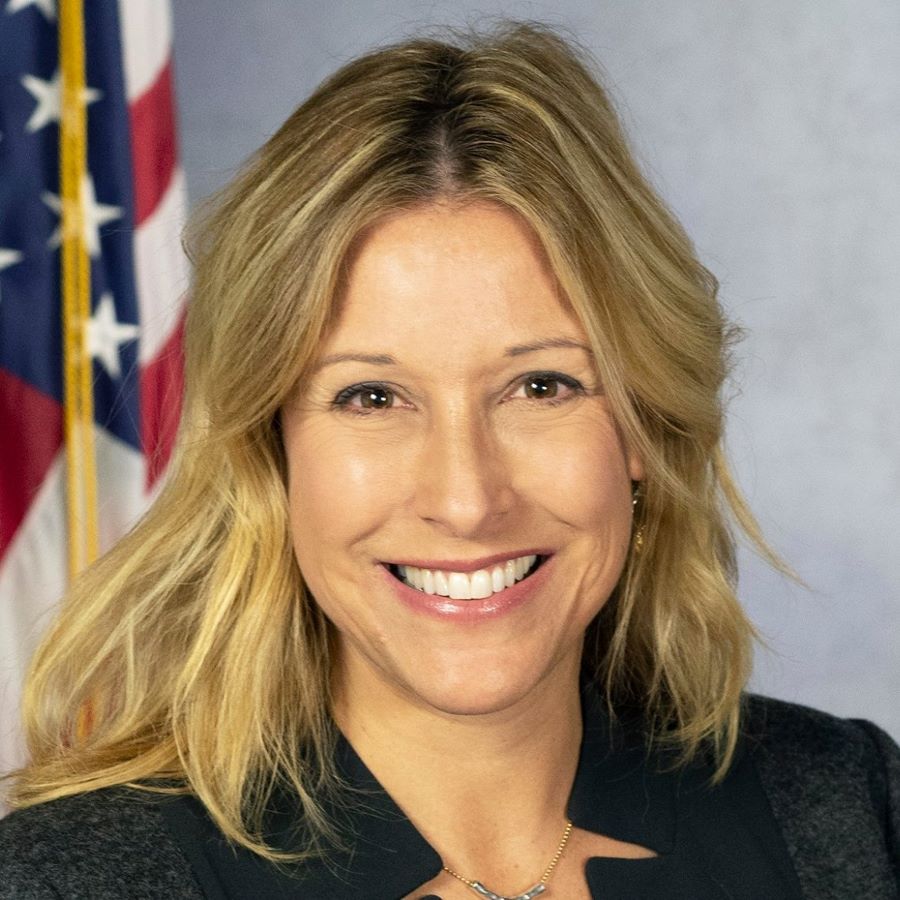Rep. Shusterman Wants to Phase Out Gas-Powered Lawnmowers in PA

State Rep. Melissa Shusterman wants the state to switch from gasoline-powered lawnmowers and other gardening equipment for the good of the planet.
Shusterman (D-Paoli) posted this sponsoring memo on the House website: “Gas-powered lawn and garden tools represent about 85 percent of what is known as small off-road engine (SORE) equipment in the United States. Such equipment is often manufactured without the pollution controls placed on gas-powered vehicles and thus burns a dirtier fuel mix. Moreover, operating a gas-powered commercial lawn mower for one hour emits as much pollution as driving a passenger car about 300 miles.
“Recognizing such a substantial contribution to pollution, more than 100 local governments in the United States have enacted at least partial restrictions on using gas-powered lawn equipment. Similar proposals have been made in Pennsylvania’s neighboring states of New Jersey, New York, and Maryland. During a time when outdoor temperatures are reaching life-threatening levels, we must act with urgency to limit sources of significant pollution, such as gas-powered equipment.
“In an effort to join these states at the forefront of climate stewardship, I am introducing a resolution to establish a Zero Emissions Lawn Care Task Force. The task force would develop a plan to phase out gas-powered lawn and garden equipment in Pennsylvania. In doing so, it would consider issues of affordability and accessibility for disadvantaged communities in its recommendations and establish a plan for an incentive program to encourage the switch to battery-powered alternatives,” she said.
Pennsylvania Manufacturers Association President Dave Taylor was shocked that a Pennsylvania state representative would propose this.
The idea “looks like it was plucked straight from Santa Monica, Calif.,” he said. “And if she thinks Pennsylvania is like California, she’ll find it’s very much otherwise.”
Taylor said we should allow the market to decide whether electric devices will be used rather than having government regulation mandate them.
“This mindset is part of command and control statism,” said Taylor. “It’s extremely arrogant for a politician to decide what kind of equipment people can or cannot use.”
He said many small businesses are involved in mowing lawns and landscaping, and forcing them to buy new equipment could put them out of business.
“And what about privately owned equipment?” he asked. Would the government “send the state police to people’s homes to check on their lawnmowers?”
“It’s extremely short-sighted and presumptuous,” said Taylor. Lithium-ion batteries to run electric lawnmowers are made in China. Here, there is “zero capacity” to manufacture them. Would Shusterman “approve more lithium mining permits or permits for processing facilities?”
“Greens don’t want mining, manufacturing, and processing,” he said. “They don’t even want the transmission lines that would be needed” to charge all these new electric devices.
“I doubt if Rep. Shusterman spoke to any small business owners,” he said.
Nicholas Froio, a co-owner of Froio’s Lawn& Landscape, a landscaping company in Chester County, said they’ve looked at electric mowers and other equipment for the last five years.
“We’re not against it,” said Froio. “We just ordered six new lawnmowers at $11,000 a piece, and the electric ones are $25,000 to $30,000. They’re 2.5 to 3 times the cost. So, not only is cost an issue but then, let’s talk about run time. You’re not going to be able to get a full day of run time out of an electric lawnmower. So now you have to set up your trailer with some sort of solar charging and things like that to be able to charge on the go.”
“So, you’re just seeing the snowball effect, and that’s kind of the rundown for the mowers. But they have their advantages. The blade time speed is going to be tremendously better because it’s all individual. Each blade has its own motor. So, everything has its advantages. And technically, electricity is cheaper than gas.”
As for handheld tools, “We’re still contemplating having an entire crew on electric. So that’s not out of the question,” said Froio. “Yes, they’re slightly more expensive, but nothing too crazy.”
“But ultimately, it comes down to two things. One, you need a lot of batteries, the capacity, and how long they last. And two, when it comes to a leaf blower, electric can’t produce nearly as much CFMs (cubic feet per minute) as a gas blower.”
Froio does not like the idea of the government mandating a switch.
“If the government wants to give me $20,000 to switch over a crew, I’ll take it,” said Froio. “I’ll switch it over, and you’re not going to hear me complain. But it’s like, do you want to incentivize it? I think it’s part of the whole picture that’s not fully painted.”
“We’re not against it but…I don’t want to be forced to do it,” he added.
Jennifer Brown, a spokeswoman for Shusterman, said “global warming,” is the reason Shusterman is sponsoring a resolution for the task force.
“There were several 60-degree days in February and we haven’t had any snow,” said Brown. “It’s pretty clear our planet is warming. And gas-powered law equipment is one of the biggest reasons.” She noted an article from PennEnvironment shows southeastern Pennsylvania as a heavy emitter of carbon dioxide.
Members of the lawncare industry will be invited to participate, along with scientists and other stakeholders, she said. The thought is to encourage change with rebates, tax credits and discounts on new electric equipment. They will “collaborate and determine what makes the most sense for business owners,” Brown said.



